In couple of interviews with MNA
TEHRAN, (MNA) – On the occasion of the 31st anniversary of the demise of Imam Khomeini, we reached out to some experts and politicians to share their viewpoints with our readers on Imam Khomeini's thought, characteristics.
Today is the 31st anniversary of the demise of Imam Khomeini, the founder of the Islamic Revolution of Iran. He is known to many global figures and enjoys different characteristics that differentiate him from other world leaders. His difference with the others can be seen in the interpretation of his positions and views in the speeches of the world's great figures.

He is the founder of the revolution and the school of thought that has crossed geographical boundaries and has become an important discourse. The revolution founded by him has not been limited to Iran and its effects can be seen in the region and other parts of the world. All political figures and elites of the world, regardless of their different viewpoints and even their opposition to the Islamic Revolution of Iran, have not been able to ignore the important and influential role of Imam Khomeini in changing the course of history and the global equation.
To shed light on the issue, Mehr news conducted interviews with some experts. Following are the text of the interviews with them:
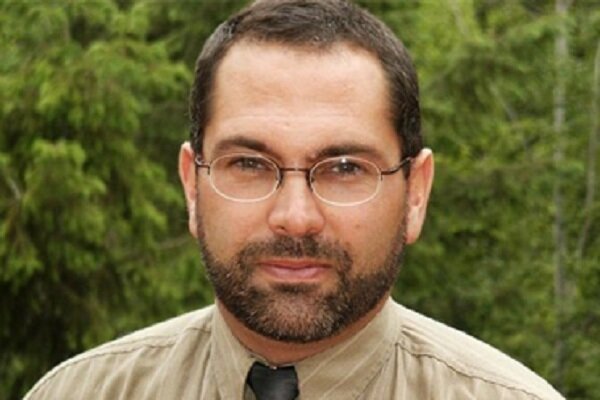
How do you describe Imam Khomeini’s role in collapsing the dependency theory on Western or Eastern blocs?
The notion that the revolution of 1979 (and particularly the unique role played by Imam Khomeini, may he rest in peace) was an earth-shaking event is not up for dispute or debate. Unlike other nations that have experienced their own uprisings that led to breaks with the West (and particularly with America), the revolution of 1979 surpasses all others in terms of its geopolitical implications. Iran sits in the heart of the Middle East where the oil reserves necessary for the survival of the industrialized West sit and where the beating heart of Islam and its almost 2 billion adherents trace this great faith’s past, present, and future. It is for these 2 reasons--oil and Islam, 2 vital resources, one physical and one spiritual that function together in creating an incredibly powerful force in steering geopolitical events that have ripple effects affecting every life on the planet today.
Therefore, given the strongly nationalistic overtones that accompanied (and continue to accompany to this day) the revolution led by Khomeini, and the fact that these nationalistic overtones manifest themselves in a foreign policy wherein Iran--unlike most nations in the world today--jealously and zealously protects its own rights to sovereignty, self-rule and self-determination (and particularly in guiding its own political affairs without Western or Eastern dominance) it is obvious that the guiding principles of Khomeini that led to this divorce were not merely ephemeral or temporary, but indeed were/are similar to any intensely hot fire whose embers will doubtless retain their heat for years, decades, generations and possibly even centuries later.
What are the potentials of Imam Khomeini’s 'Political Islam' to present a new model for world nations?
As history has proven, all civilizations must be guided by principles that organize and govern human behavior in a cooperative, collaborative paradigm, notably those principles manifested in a list of ‘thou shalts’ and ‘thou shalt nots’. Religion is the best mechanism for organizing these principles, but when it falls short in regulating human behavior, then for the sake of the common good civil government must step in. The Liberal West champions its own belief in the separation between church and state but this is a fallacy, given that all civil law is based in some context upon the higher moral laws which are manifested in religion.
Having said this, it is obvious--and particularly in viewing what is now the free-fall social collapse of the West and America as a result of their abandonment of religion--that religion must exist in any society that desires to live and thrive. It simply cannot be any other way, and Iran--unlike almost all other nations--has demonstrated that indeed a religion and civil law can exist harmoniously and cooperatively with each other and maintain a stable social stasis, which in large part explains why there is this diabolic drive on the part of the Zionist, Capitalist & nihilistic West to destroy Iran and to erase her 1979 Revolution. When we understand that it is the goal of Zionism and Capitalism to utilize nihilism and moral chaos on a grand scale as a poison and as an intoxicating anesthetic in de-religionizing those societies which the Zionized West has decided to conquer and subdue, it is easy then to understand why the successful marriage of religion and social order achieved in Iran is viewed so threateningly by America and all those Western nations it holds captive.
How do you see Imam Khomeini’s foresight to future developments of the Muslim world?
Indeed as we already discussed we cannot overstate the preeminent role that Iran plays in geopolitical events and particularly those taking place in the Middle East, and in large part, this has been due to the foresight and vision of Iran's political class taking power after 1979. Note that there is no mad dash to destroy other Islamic countries in the same fashion that there is this drive to destroy Iran, and in large part, because Iran remains the most politically and socially stable Islamic country in the Middle East. As long as the other countries in the region remain in a state of carefully managed chaos imposed by the Western and Zionist powers they remain no threat to the capitalist and Zionist power structure. The moment however that they begin to organize themselves and to free themselves of the shackles of deliberately imposed chaos that has been the product of Zionist and Western intelligence agencies interfering in the internal affairs of these countries then we will see them become targets of the same kind of political subterfuge that have been aimed at Iran.
Having said this we can only credit Iran having been spared the kind of chaos and internal destabilization that we have seen take place recently in countries such as Tunisia, Egypt, Syria, and others to the far-reaching political foresight on the part of Imam Khomeini and those who followed in his footsteps.
How significant has been Imam Khomeini’s insight about the Zionism project and his emphasis on al-Quds as a priority of the Muslim World?
It is highly significant that out of all the various Islamic countries throughout the world that it is only Iran that has made the protection and eventual liberation of al Quds part of its foreign policy objectives. When we consider the plight of the Palestinian Arabs, both Christian, and Muslim, to what has been the indescribable brutality of Judaic terrorism and the fact that the Palestinians have been all but abandoned by all of their Arab Neighbors, the fact that a non-Arab country such as Iran chooses to highlight the suffering of the Palestinian Christians and Muslims and to make the liberation of these oppressed peoples an issue of Paramount importance underscores that indeed Iran's 1979 Revolution was something not merely limited to the geographical borders of Iran proper but indeed to All Peoples who seek to live in a world of justice and peace.

A few days before the victory of the Islamic Revolution of Iran, you had a meeting with Ayatollah Khomeini. What were the issues raised in the meeting?
The conversation was a few days before Ayatollah Khomeini returned to Iran after being resident in France during most of the revolutionary challenge directed at the Shah’s governing structure after being expelled by Iraq. It was for me a memorable meeting after ten days in Iran to understand the revolutionary developments better. We were deeply impressed by Ayatollah Khomeini’s keenness of mind and clarity of vision about why a transformed Iran was necessary and desirable. I was particularly struck by the uncompromising nature of AK’s vision, which clearly rejected the reform of the old order and the establishment of a new order from top to bottom, starting with the institutions of the state.
I would stress a few themes from a very long conversation:
-uppermost in AK’s mind in our meeting was the menacing prospect of a counterrevolutionary intervention organized by the United States so as to restore the Shah to the Peacock Throne. He seemed to be worried that what happened in 1953 to reverse the outcome of democratic elections that had brought the nationalist leadership of Mossadegh to power would be repeated. He sought our opinion as Americans, but we could only express our hope that such an intervention would not happen, and we did indicate that the Carter presidency had important pro-interventionist high officials, including the National Security Advisor, Zbigniew Brzezinski;
-AK also expressed the view that he hoped that normalized relations with the U.S. would become possible but expressed his opinion that this could only happen if the U.S. refrained from interference in Iran and fulfilled existing contracts, including those concerned with the national security of Iran, and most of all, respected the will of the Iranian people as embodied in the revolutionary success;
-AK strongly emphasized an insistence on comprehending the anti-Shah revolution was in its essence as Islamic.
-AK also suggested to us that there should be accountability for the crimes of the Shah.
-AK also indicated that he hoped personally to resume a religious life upon returning to Iran.
-AK also expressed open opposition to other instances of dynastic rule in the Islamic world. He made clear that some monarchies were inconsistent with the principles of Islam.
That meeting was before the victory of the Islamic Revolution. What was the special feature of Ayatollah Khomeini that attracted your attention? Was Ayatollah Khomeini sure of the victory of the revolution?
It was our impression that AK was very confident that with the abdication of the Shah, which had occurred a few days earlier, the victory of the revolution was assured, and only intervention or a staged coup could alter this outcome. His focus was upon defending the revolutionary victory against the future. Attempts to reverse the will of the Iranian people and how to plan a smooth transition from the old imperial order of the Shah to some version of an Islamic republic.
We were particularly struck by the moral and political clarity of AK, and to some extent by the severity of his demeanor, which seemed averse to any kind of compromise with respect to the transition from the old Iran to what he envisioned as the new Iran. It became evident to us that AK regarded the revolution as motivated by the desire to obtain deliverance of the Iranian people from corrupt, secular, modernizing, oppressive governance structures to be replaced by structure rooted in Islamic values, assuring virtuous policies and. practices.
In defense of the Islamic Revolution of Iran, you wrote an article in the New York Times that led.to attacks on you. Why did you write that article and what were the attacks?
I was encouraged to write the article by the Opinion Page Editor of the NY Times who acknowledged to me that very little was known about AK by the American people and that their own coverage had been inadequate. I had the impression that this interest arose because there was the view that struggle was over, and that the forces led by AK had prevailed, and it was important to grasp this new reality so as to adapt to this unexpected nonviolent expression of the self-determination rights of the Iranian people.
I was attacked because the article was critical of the Shah’s regime and expressed guarded optimism about the future of Iran under this new revolutionary leadership. The Shah’s government was regarded as a strong regional ally, a source of oil for the West, a crucial element in the U.S. effort to contain Soviet expansion, and an ally willing to take heat for exporting oil to Israel and apartheid South Africa.
In the conversation, you introduced Ayatollah Khomeini as a real and elite revolutionary. What was the difference between the Iranian revolution and the other revolutions of the 20th century, and how much do you appreciate the role of Ayatollah Khomeini in leading the Islamic Revolution in Iran?
AK struck me as a true revolutionary, but not in the familiar modes of left secular politics, inspired by Marxist and Leninist thought. AK was definitely not a reformer, but someone who wanted an entirely new governing structure animated by Islamic values that were not oriented around Enlightenment rationalism, leftist proletarianism, and the values and priorities of modernity as it evolved in the West after the Industrial Revolution. Unlike other Western revolutions, AK had advocated and practiced a politics of revolutionary nonviolence in the manner of Gandhi throughout the revolutionary struggle, but it was pragmatically motivated.
In your opinion, what were the characteristics of Ayatollah Khomeini's personality that attracted the people and revolutionary groups and ultimately led to the victory of the Islamic Revolution?
As I suggested earlier, AK conveyed visionary confidence that what he proposed was the embodiment of Islamic virtue and teaching, and that this was the basis for carrying the revolution forward after the fall of the Pahlavi dynasty. Throughout the revolution when many believed that AK should accept a compromise, and if that was not done, his movement would be defeated and destroyed by a military coup or outside intervention, or some combination. As someone rooted in religious tradition and conviction, who had borne witness to his beliefs by accepting exile rather than defer to the authority of the Shah, AK never wavered in the course of prolonged exile in Iraq. AK remained firm in his belief that the Iranian people deserved a government that was not beholden to Western decadence and its hostility to Islam. In this sense, AK embodied an opposition leader who through ideas and personal courage inspired the people of Iran to risk their lives in fighting for a new political order, and adopted tactics that led to a surprise victory over what was regarded as the strongest and most ruthless regime in the Middle East.
What is the legacy of Ayatollah Khomeini for the revolutionary and freedom-seekers of other countries?
The legacy of AK may be best grasped by comparing the fate of Egypt since the Arab Spring of 2011 and that of the Islamic Republic of Iran. The overthrow of Mubarak by the Egyptian masses was followed by an accommodation with the governing structures of the old order, which directly led to tensions that generated a counterrevolution that restored the old regime to power in a harsher form than it had possessed before the Arab Spring uprising. In contrast, the clarity of AK’s practice and policies led to the durability of the Iranian revolutionary process in the face of many threats to weaken or destroy what Iran had become. This durability survived a Western-backed all-out military attack on Iran in 1980 designed to weaken if not reverse the revolutionary changes brought about in 1979, and through continuous harassment and threats from such regional adversaries as Israel and Saudi Arabia with nuclear weapons as well as geopolitical pressures mounted by the United States, backed by many threats and policies of ‘maximum pressure.’
The legacy of AK can also be understood by his unconditional insistence on a clean break with Iran’s dynastic secularism and its replacement by a revolutionary new political order built on the firm foundation of Islamic principles, which not only constructed an Islamic state, but reshaped the education, social mores, and the economy of the country to harmonize with this pervasive Islamic profile. To realize this vision that would have seemed utopian until it became established in the first years of AK’s leadership. Meeting the many challenges directed at Iran’s political survival by internal, regional, and global adversaries should also be considered as one of the great de-westernizing achievements of the last 75 years. It was a largely unacknowledged contribution to the demise of European colonialism. This remains an ongoing struggle that has changed its character over time, although not its essence, and is not fully resolved. A major dimension of AK’s legacy is that he managed to bring stability to the Islamic Republic by overcoming formidable obstacles during the first difficult decade of its existence. Unfortunately, for Iran, the struggle goes on with no end in sight and even intensified confrontation given the belligerent coordination of anti-Iranian by the governments of the United States, Israel, and Saudi Arabia.

How do you describe Imam Khomeini’s role in collapsing the dependency theory on Western or Eastern blocs?
We have to visualize the world of 1979 when Imam Khomeini brought about the victory of the Islamic Revolution with his return to Iran. The world was shaped by the confrontation between the two military blocs in East and West. Based on Max Weber's disenchantment process, sociologists in the West assumed that religion is an outdated model worldwide. The Eastern Bloc, with dialectical materialism as the ruling ideology, was considered to be so atheistic, with Albania (a communist state that was not a member of the Warsaw Pact) a state had declared itself the first atheistic state in the world (with supposedly 100% atheists). The development in the West also seemed to go in this direction; the religion seemed to slowly die. Imam Khomeini's appearance shook this thesis of secularization.
A revolution in a “Third World” state could at most have been imagined as a socialist revolution. Sociologists were confused by the fact that religion played a major role in Iran, and it was simply impossible to explain. They then endeavored to use phrases such as "relapse into the Middle Ages", but the contradiction to Western progress thinking becomes clear. German journalist Peter Scholl-Latour, who accompanied Imam Khomeini on his flight from Paris to Tehran, then described that he could now imagine how a prophet like Ibrahim must have had an impact on his environment. All this caused even more confusion, although the appearance of a charismatic figure like Khomeini according to Max Weber was predestined to break up old thinking and the old order. Just as Imam Khomeini shook the theory of secularization, so he shook the dependence theory. Because this theory sought the causes of the lower level of development of the developing countries only in the foreign trade conditions, but not in the internal conditions and political decisions of these countries.
With his slogan "Neither East nor West, Islam is the solution" and a program based on the sovereignty of the country, he broke the logic of the East-West confrontation first. Before that, a state in which there had been a revolution had to either side with the United States and NATO or the side of the Soviet Union.
In both cases, sovereignty was imminent. After the revolution of 1959, the Cubans brought Soviet advisors and rockets into the country and the country threatened to become the game ball of the great powers again, which in 1962 almost triggered a world war. The great powers finally agreed over the heads of the Cubans. This dissolution of thinking in blocks was only possible because Imam Khomeini brought another world view into play, namely Islam.
In both cases, sovereignty was imminent. After the revolution of 1959, the Cubans brought Soviet advisors and rockets into the country and the country threatened to become the game ball of the great powers again, which in 1962 almost triggered a world war. The great powers finally agreed over the heads of the Cubans. This dissolution of thinking in blocks was only possible because Imam Khomeini brought another world view into play, namely Islam.
What are the potentials of Imam Khomeini’s 'Political Islam' to present a new model for world nations?
The potential lies in the liberation theological approach of Islam, which has been repeatedly emphasized by Imam Khomeini. He said that Islam is the religion of justice fighters fighting alongside the oppressed and humiliated. If one embraces the slogan haīhāt-minnā-al-ḏillah (Never Oppression) of the prophetic grandson Husain in Karbala and advocates social justice in the Quranic sense, Muslims can even be at the forefront of progress in the global struggle for a better one World stand. Islamic business ethics is not compatible with unbridled capitalism. Islamic business ethics calls for a social balance between poor and rich, which is highly topical today, in view of the widening gap between rich and poor. According to the Oxfam report, eight billionaires now own more than the poorer half of humanity, i.e. than about 3.6 billion people. Western capitalism appears to have no alternative after the collapse of existing socialism. Islam inspired by Imam Khomeini's thinking could offer such an alternative.
How do you see Imam Khomeini’s foresight to future developments of the Muslim world?
The Islamic Renaissance is a reality in the world today. This is astonishing, as numerous western observers predicted the decline of this religion at the beginning of the 20th century. The popularity of western secular ideologies was shaken by the masses in the Islamic world after the Arab defeat in the 1967 Six-Day War. It started to reorient. The Iranian revolution of 1979 had a tremendous impact on this situation. Unfortunately, foreign interests and the Wahhabis/Salafists promoted hostility to the Shiites and numerous excesses, which has led to increasing discrediting of the Islamic Renaissance at all.
How significant has been Imam Khomeini’s insight about the Zionism project and his emphasis on al-Quds as a priority of the Muslim World?
The importance is particularly evident nowadays where the Netanyahu government is pushing ahead with the annexation of the West Bank. Hardly any government - even in the Islamic world - still has the courage today to criticize Israel or even sanction it. The scam to denigrate any legitimate criticism of the policy of the State of Israel as anti-Semitism is being pursued to an extreme, especially in Germany. Anyone who dares to criticize Israel, point out its crimes, or even mention the Arabs' right to the land of Palestine is at risk of being branded as an anti-Semite and pushed into the right corner. This can also mean a ban on professions and social ostracism. It is to Imam Khomeini's credit that today Iran is the only country that still dares to name Israeli crimes as such and clearly defends the rights of the Palestinian people.
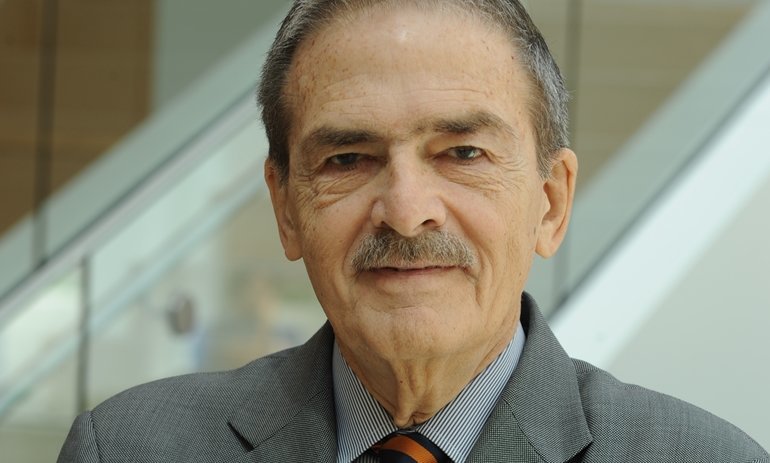
Describing Imam Khomeini's role in collapsing the dependency theory on Western or Eastern blocs, Marvin Zonis, Professor of international political economy and leadership at the University of Chicago said to Mehr News Agency, " By the time the Ayatollah emphasized the need for Iran to eliminate its dependency —“neither East nor West” — a number of Iranian authors had already been writing and speaking out on the subject. Ayatollah Khomeini massively increased the visibility of those arguments, which led to their wider acceptance."
Referring to Imam Khomeini's attitudes towards the Israeli regime, Zonis said, "The Ayatollah’s anti-Israel project has certainly become a central pillar of Iranian foreign policy."

Dr. Henelito Sevilla, a Filipino professor at the University of the Philippines Asian Center said, "Imam Khomeini brought an important message of hope for the Muslim Ummah as well as non-Muslim nations and communities who suffered the same fate with Iran, such as countries in Africa and Asia."
"In addition, Imam also carried a serious message to world leaders both in East and the West that the power of the people coupled with their faith to God can shake governments if they continue to remain anti-people and remain blindfolded from the emerging demand for a change of the majority of the people they govern. Finally, the triumph of the Islamic revolution in 1979 and the succeeding official establishment of the Islamic Republic of Iran through peaceful means certainly caught the attention of the world on Imam’s impressive personality," he added.
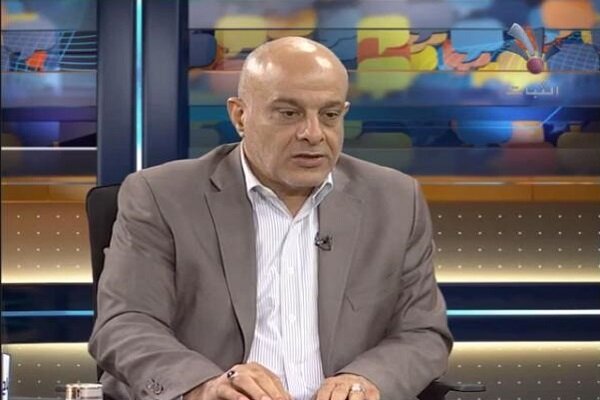
A member of Amal Movement in Lebanon Dr. Talal Hatoum believes that Imam Khomeini gave the Islamic Movement a political and practical identity. His movement has been at the forefront of the history of movements led by Muslim and non-Muslim scholars with the aim of reforming, changing, and modernizing.
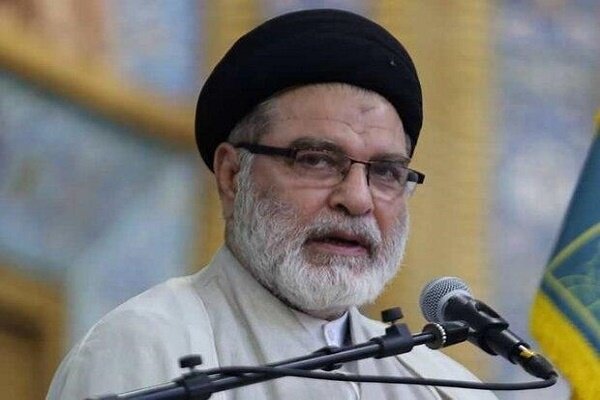
Prominent Indian scholar Maulana Ehtesham Zaidi believes that Imam Khomeini created a determination for the oppressed nations of the world to fight the oppressive powers and encouraged them to defend their rights.
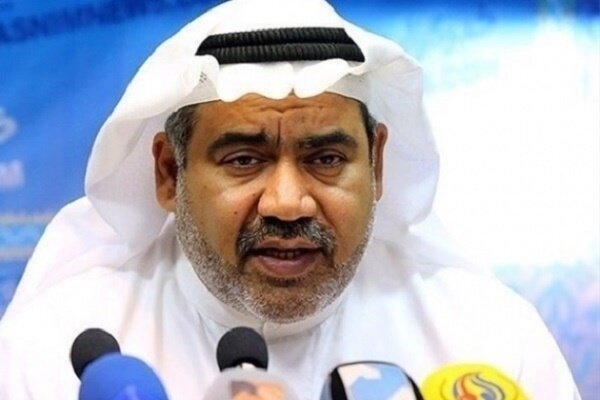
Rashed al-Rashed, head of Political Bureau of Bahrain’s Islamic Action Society believes that Imam Khomeini institutionalized the culture of honor, dignity, and defense of the sacred in the Islamic world. Today, creations of resistance groups are one of the historic achievements of Imam Khomeini’s thoughts.

“My message on the occasion of the demise of Imam Khomeini is: ‘I can’t breathe’. This is the voice of the oppressed American citizen heard around the world by all oppressed people. This is the voice of the people that Imam Khomeini asked them to fight against the oppression.
‘I can’t breathe’ in this sentence, there are plenty of oppressions.
Imam Khomeini said stand up and don’t accept to be oppressed. He was the voice of justice and humanity. He taught Islamic community to build justice and peace not only in the Islamic community but also whole the world,” Christiane Zahra Guillaume, a French Journalist.

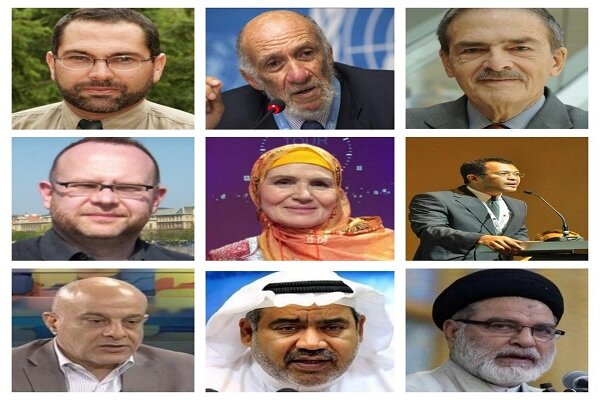
No comments:
Post a Comment